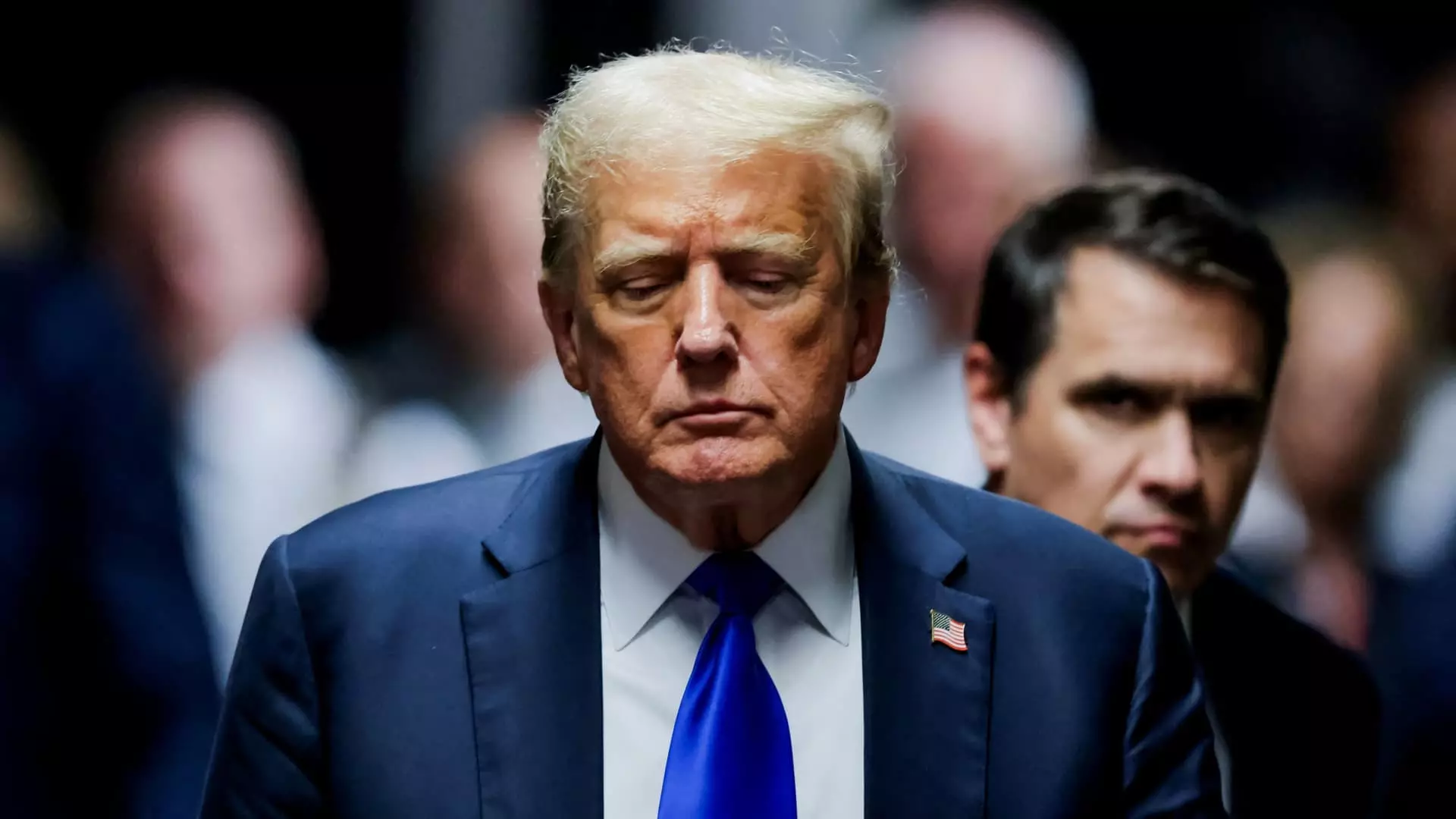In the tumultuous arena of American politics, legal battles often intertwine with the pursuit of justice and the complex web of presidential powers. A significant case exemplifying this dynamic is the recent criminal hush money conviction of former President Donald Trump. This event has not only sparked media fervor but has also raised substantial questions about the boundaries of presidential immunity and accountability. The Manhattan Supreme Court’s handling of this case may set crucial precedents for how similar cases will be approached in the future.
On a recent Monday, Judge Juan Merchan of the Manhattan Supreme Court dismissed Trump’s defense that claimed presidential immunity could shield him from prosecution regarding his conviction of falsifying business records. The crux of Trump’s defense hinged on a recently validated Supreme Court finding, which suggested that American presidents possess a presumptive immunity for actions taken in the line of official duties. However, Merchan refuted this argument, asserting that the nature of Trump’s actions—specifically those deemed personal—fell outside the protective scope intended for legitimate official conduct.
This ruling is significant, as it indicates a judicial willingness to separate personal misconduct from official presidential duties. Merchan stated that even if the evidence in question were attributed to Trump’s presidential responsibilities, the personal nature of the allegations—stemming from a $130,000 hush money payment to adult film actress Stormy Daniels—compromised the impenetrability typically accorded to presidential actions. This assertion is crucial not only for this case but also for future precedents regarding presidential accountability in the face of alleged misconduct.
While Judge Merchan’s decision rejects the claim of presidential immunity, it does not signify the closure of legal proceedings for Trump. His legal team is still poised to argue additional claims that they believe warrant the dismissal of all charges, including potential implications arising from his unique position as a twice-elected president. The timing of these arguments remains uncertain, as does the forecast for Trump’s sentencing, which might be deferred until after the conclusion of his presidential duties or possibly under conditions minimizing his exposure to incarceration.
Trump’s case has evolved beyond mere legal disputes; it has become emblematic of the ongoing cultural and political divisions within the United States. With Trump being the first former president to face criminal convictions, the implications of this case stretch into broader discussions about the rule of law, executive accountability, and the interplay between legal systems and political status.
As the court proceedings unfold, public opinion remains deeply divided. Supporters of Trump have rallied around the idea that his prosecution represents a politically motivated “witch hunt,” echoing sentiments expressed by his spokesperson, Steven Cheung. The assertion that Trump is being unfairly targeted contrasts sharply with the views of those advocating for accountability and transparency from public officials. This dichotomy is amplified by the media coverage surrounding the case, reflecting the polarized nature of contemporary American political discourse.
Furthermore, Trump’s conviction raises fundamental questions about the ability of a sitting president or president-elect to govern effectively under the weight of ongoing legal scrutiny. If Trump’s appeals are exhausted without success, the repercussions could extend into his political career and future electoral aspirations, potentially altering the landscape of American politics for years to come.
The unfolding narrative of Trump’s hush money conviction encapsulates the evolving relationship between the presidency and the judicial system. As Judge Merchan’s ruling clarifies the limitations of presidential immunity, it sets a noteworthy precedent for future legal challenges involving high-level officials. While Trump’s legal team may continue to contest various charges, the implications of this trial may resonate far beyond the courtroom, affecting notions of power, accountability, and justice in the stratum of American governance.
As we observe this ongoing saga, it is pivotal to consider not only the immediate legal outcomes but also the long-term effects these proceedings may have on public trust in democratic institutions and the sanctity of the rule of law. Whether this case ultimately leads to greater accountability for leaders or spirals into further political discord remains to be seen, but it will undoubtedly shape the framework for how America navigates the complexities of law and leadership.


Leave a Reply